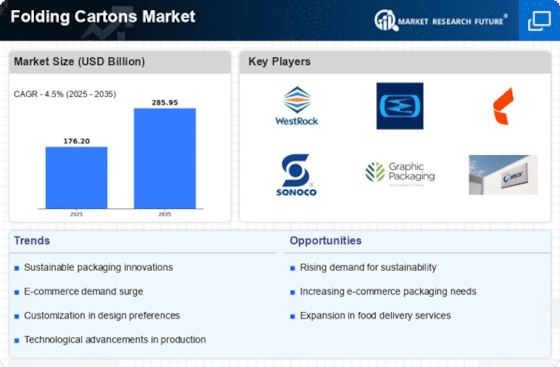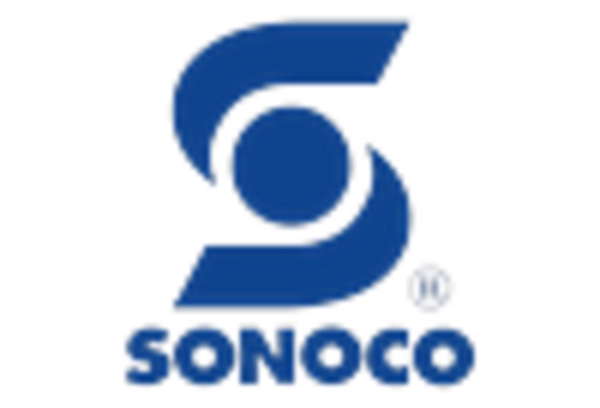Market Analysis
In-depth Analysis of Folding Cartons Market Industry Landscape
The folding cartons market is a dynamic sector within the packaging industry, characterized by its versatility, sustainability, and adaptability to various consumer goods. Market dynamics in this industry are influenced by several factors, including consumer preferences, technological advancements, regulatory requirements, and economic conditions.
Consumer preferences play a significant role in shaping the folding cartons market. As consumers become more environmentally conscious, there is a growing demand for sustainable packaging solutions. Folding cartons, which are often made from recyclable materials and are easily biodegradable, align well with these preferences. Additionally, consumers are increasingly drawn to packaging that offers convenience, such as easy opening and resealing features, which can drive innovation in the folding cartons market.
Technological advancements also impact market dynamics by enabling manufacturers to produce folding cartons more efficiently and cost-effectively. Advanced printing technologies, such as digital printing and high-speed offset printing, allow for customization and shorter lead times, catering to the growing trend of personalization in packaging. Furthermore, innovations in materials and production processes enhance the strength, durability, and visual appeal of folding cartons, expanding their applications across various industries.
Regulatory requirements play a crucial role in shaping the folding cartons market, particularly in terms of safety and sustainability standards. Governments and regulatory bodies around the world are imposing stricter regulations on packaging materials and waste management, driving manufacturers to adopt eco-friendly practices and materials. Compliance with these regulations not only ensures market access but also enhances brand reputation and consumer trust.
Economic conditions also influence market dynamics, impacting factors such as raw material costs, pricing strategies, and consumer spending. Fluctuations in commodity prices, currency exchange rates, and inflation rates can affect the overall cost of production and supply chain management in the folding cartons market. Moreover, changes in consumer purchasing power and buying behavior during economic downturns or periods of prosperity can influence demand for packaged goods and subsequently impact the folding cartons market.
The increasing preferences for bio gradable packaging and the increased values for the products that are packed in the biodegradable packaging are driving the folding cartons market growth. Moreover, the potential benefits of the folding cartons such as sustainability and availability of these folding cartons have propelled potential end-user applications to utilize the folding cartons, which are increasing the overall growth of the folding cartons industry.
Competition within the folding cartons market is another driving force behind its dynamics. With numerous players ranging from large multinational corporations to small and medium-sized enterprises, the market is highly competitive. Companies compete based on factors such as product quality, innovation, pricing, distribution channels, and customer service. Mergers, acquisitions, and strategic partnerships are common strategies employed by companies to gain a competitive edge, expand their market presence, and capitalize on emerging opportunities.
Globalization and international trade also shape the folding cartons market dynamics by facilitating the exchange of goods, technologies, and best practices across borders. As companies expand their operations into new regions and markets, they encounter diverse regulatory environments, cultural preferences, and competitive landscapes. Adapting to these dynamics requires flexibility, market intelligence, and strategic decision-making to effectively navigate opportunities and challenges.


















Leave a Comment